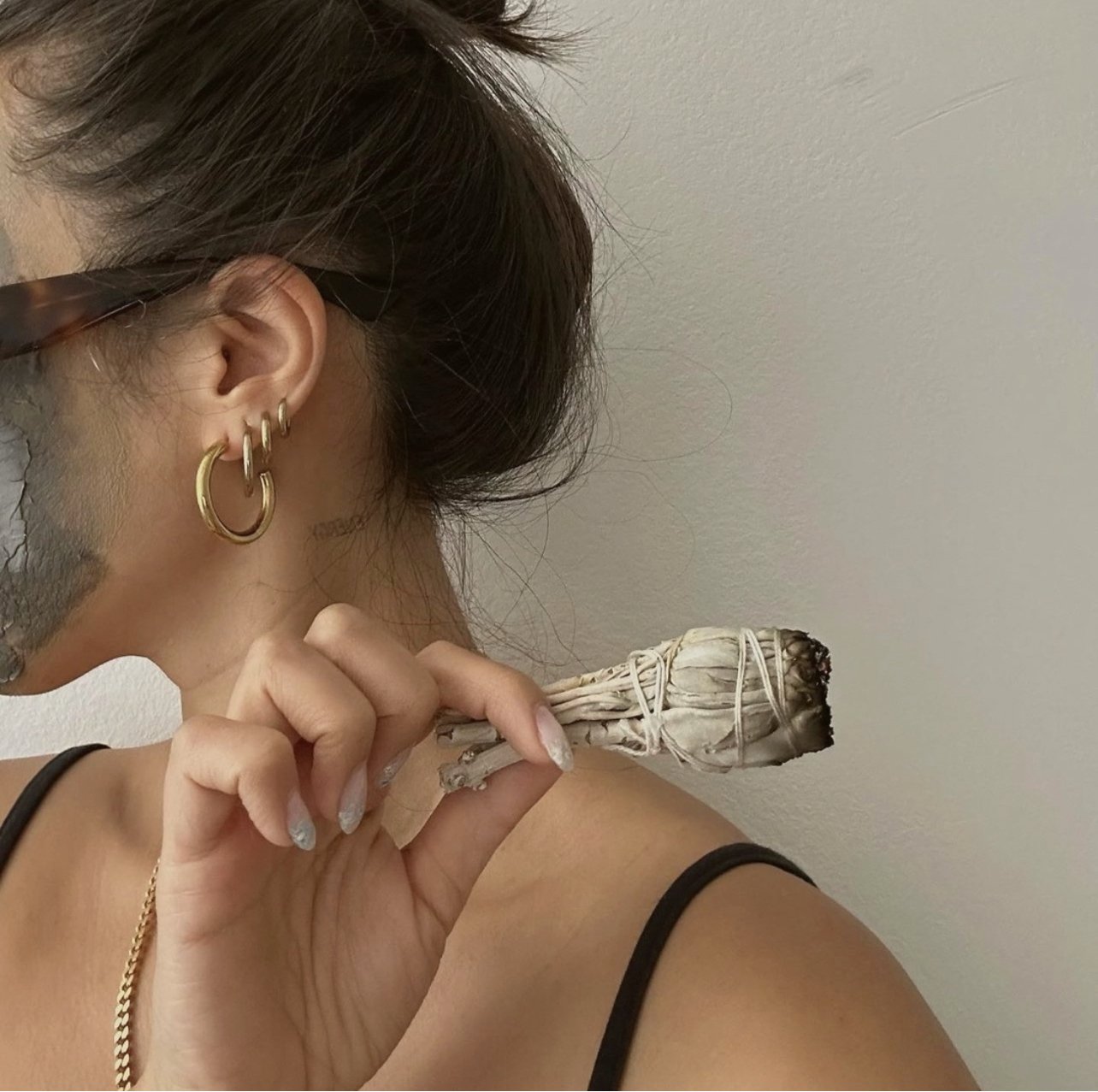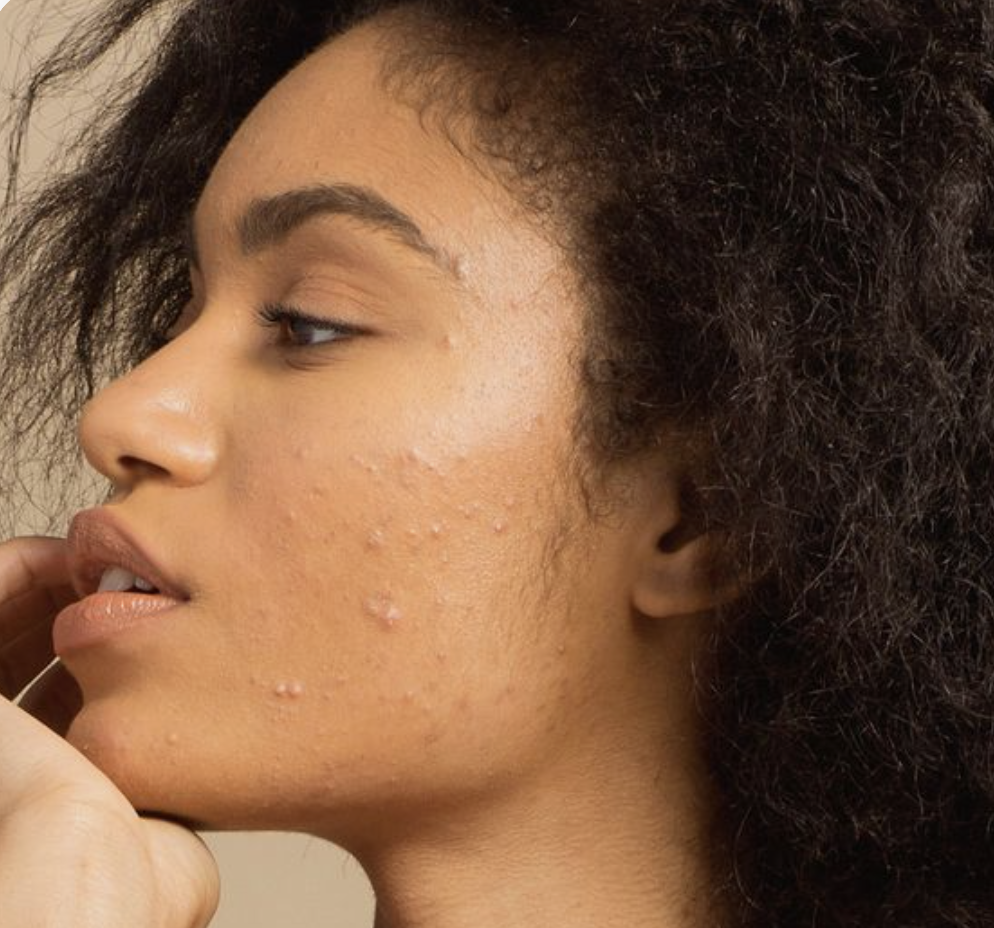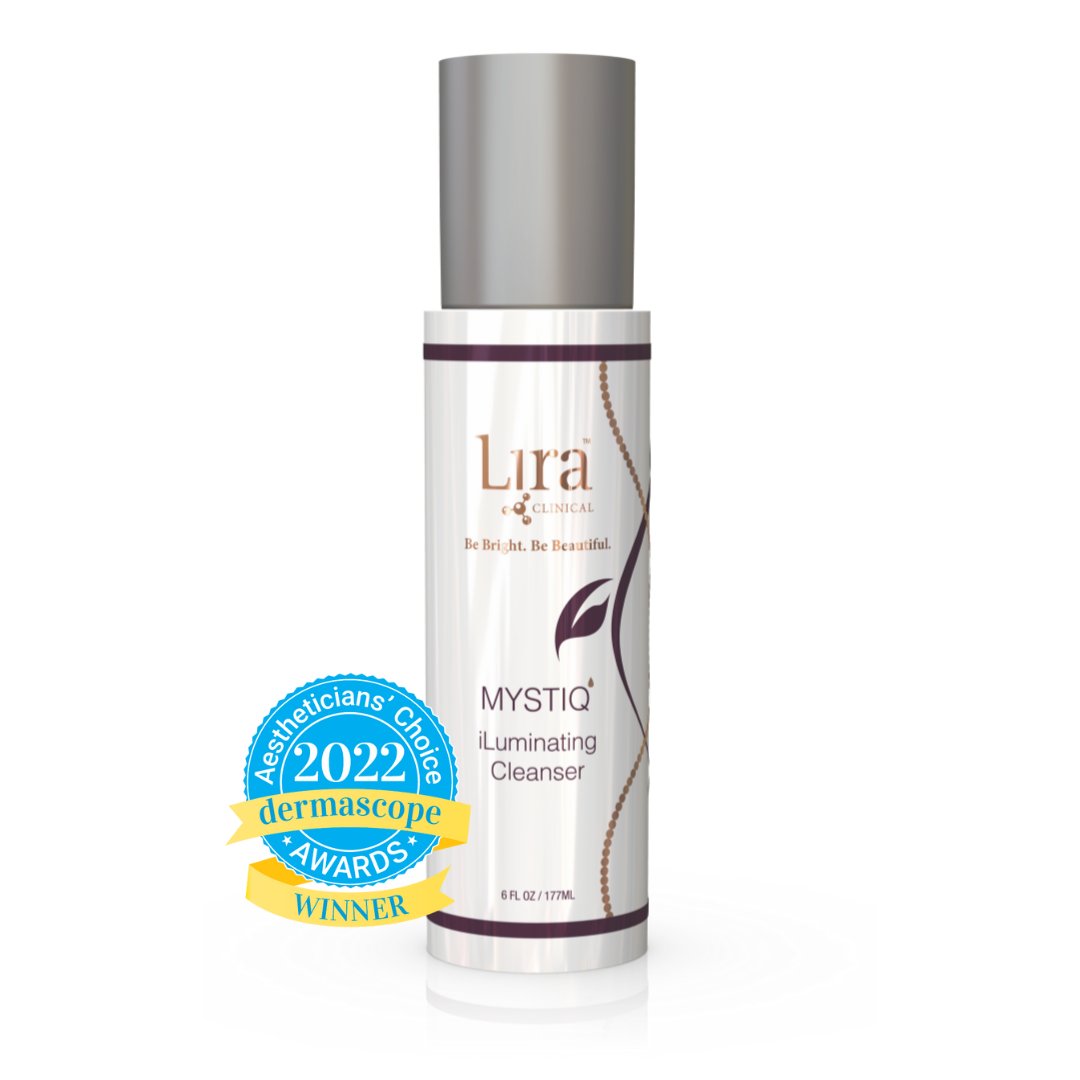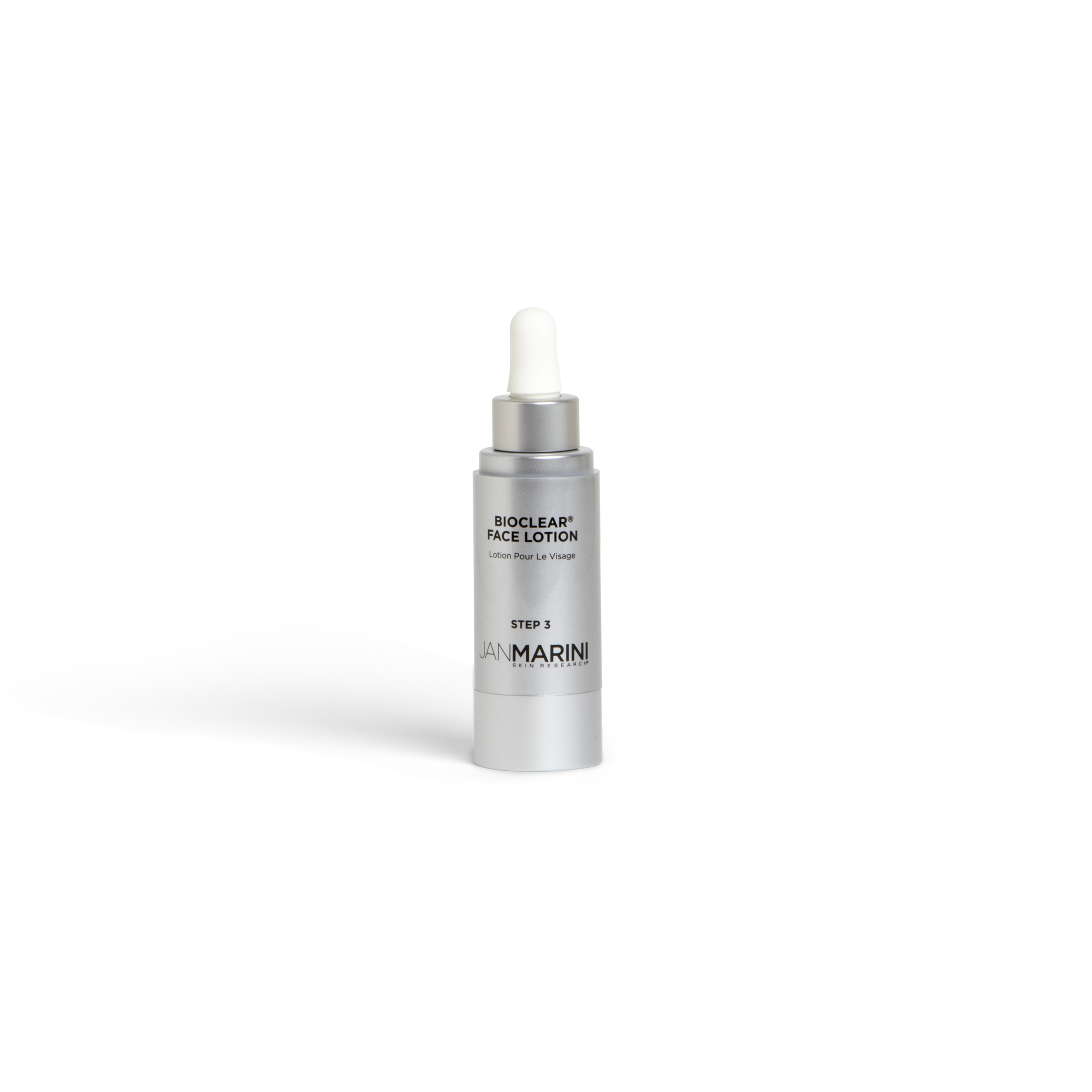How should I care for my Acne prone skin?
The complete guide to treating Acne-prone skin.
photo credit: @papyalovin
Although Acne is one of the most common skin conditions in the U.S., many people aren’t quite sure what acne is, which can make treating and preventing breakouts feel frustrating, if not, impossible.
The good news is that with a lot of patience, consistency, and the correct diagnosis and treatment plan you can be on the path to clearer skin.
As a Licensed Esthetician struggling with Hormonal Acne in the past and treating clients with all grades of acne, inflammatory, non-inflammatory, teenage acne, and adult acne, I can tell you that treating Acne successfully is not a “one size fits all” practice. However, there are some pretty standard staples in the fight against Acne and Acne-prone skin that most people should be able to easily implement into their lifestyle and routines.
1.Find out which type and grade of Acne you have.
Getting the correct diagnosis is the most important and first step in tailoring a successful treatment plan for your skin. Strangely enough, this is also the most frustrating and challenging step. Finding the right skincare professional sometimes can feel like searching for a needle in a haystack. But do not give up, although the process of finding someone you can trust with your skin can be long and oftentimes unsuccessful I am here to guide you to some of the steps you can take today to improve your skin.
Let me walk you through the different grades of acne first:
GRADE 1 Noninflammatory Acne
Grade 1 Acne is the mildest of 4 acne types hence it also most commonly know as mild acne. This Acne consists of comedones (blackheads) mostly on the nose and a few papules which are small, red breakouts typically found on the cheeks. These breakouts are minimal and tend to be occasional.
GRADE 2
Mild Acne, some inflammation.
In moderate acne, there are more blemishes. Apart from the T zone area, lesions can occur anywhere in the face. The skin has several whiteheads which are also called closed comedones. They appear like raised white or yellowish dots. When extracted by a professional with a sterile lancet a white material will come out.
Around a white head, there is surrounding redness due to mild inflammation and sometimes mild swelling of the area. Apart from whiteheads, there are papules (firm elevated reddish or skin-colored bumps when felt feel rough and irregular) and pustules (small bumps or blisters filled with yellowish material /pus) which are also called pimples.
Papules, when squeezed no fluid, will come out. Pustules when squeezed, yellow color pus will come out sometimes mixed with blood. Pus is an accumulation of skin debris, white blood cells, and bacteria.
GRADE 3 Severe Inflammatory Acne
Inflammation is marked and there will be a lot of papules and pustules over the face. Since the lesions occur near each other, they can spread and merge with each other and look like crops. This will lead to skin damage and even without squeezing, scarring can occur once healed. In severe acne, infection is deep within the skin. There will be more redness and mild swelling of the face.
GRADE 4 Cystic Acne
This stage is very severe. The blemishes are large. They can occur not only on the face but neck, shoulders, back, and sometimes arms. They are deep and firm to the touch. There are cysts that look like a boil or a big blister. The size of a cyst may be about half a centimeter in diameter. They contain pus inside. There are also firm or hard bumps called nodules. They do not contain pus. When the face is touched, it may cause pain. Scarring is very common in Cystic acne as the lesions are deep.
What causes Acne?
Genes: Acne can be hereditary which means the condition can pass through genes and is caused by overactive sebaceous glands in the skin.
Cosmetics: when you use a new product or a product that doesn’t, you’re your skin, it starts to break out and this is the kind of acne you get. It could be from makeup, sunscreen, products with ingredients that clog your pores, irritating fragrance from fabric softeners, etc.
Food Allergies: Food allergies are generally very subtle but some foods in certain skin types can pack a big punch in the acne department. These include sensitivity to milk, dairy, iodine, gluten, biotin, sugar, soy, etc.
Poor Cell Turnover Rate: when dead skin cells are not being shed at the proper rate and contribute to pore blockage, it leads to acne.
Disturbed Skin: When your skin is irritated (red, flaky, itchy, stingy) or overly dry, it can make you more vulnerable to p.acnes. With poor skin barrier function, your skin doesn’t do a good job protecting itself and keeping itself healthy.
Underlying Health Problems: Underlying health problems can also cause acne. These include candida, thyroid problems, PCOS, diabetes, digestive imbalances, and metabolism issues.
Stress, Lack of Sleep: Stress can wreak havoc on the skin and worsen acne symptoms. But it isn’t so direct a cause of acne that every time you feel stressed, you instantly get a new pimple. The alternative, being stress-free, also doesn’t guarantee clear skin. Stress, however, is definitely something that can aggravate acne and make it worse.
Toxin Build-Up: Toxins can build up in your body through constipation or poor liver/kidney/intestinal function. When this happens, the build-up gets released through your skin, resulting in acne.
Photo credit: @hannaschonberg
What is the best skincare routine for Acne and Acne-prone skin?
While the Acne symptoms can fade over time, this skin condition is something you are most likely going to have to manage and maintain for the rest of your life. Here are some of my professional recommendations that are easy to implement and sustain in anyone's lifestyle and daily routine.
Cleanse your skin.
Cleansing should be done 2 times a day ( this is non-negotiable ) and is the most important step in any skincare routine but especially the one for Acne and Acne prone akin. Cleansing will remove dirt and access oil from your skin and will prepare your skin to absorb the active antiinflammatory and antibacterial ingredients from your treatment serums and lotions to penetrate better.
It's important to note that over-cleansing can cause the opposite reaction of what you're looking to achieve. If you try to overdry and remove too much of your skin's natural oils you might begin to experience even more oily skin and breakouts. For that reason, I recommend alternating two different cleansers in your routine.
Our most popular daily cleanser gently cleans and exfoliates the skin. Glycolic acid provides deep follicular cleansing to remove impurities and dead cells from the skin and preps the skin for enhanced benefits from additional products used as part of a skincare program. Bioglycolic Face Cleanser's non-foaming, hydrating cleanser leaves the skin clean, soft, and hydrated and eliminates the need for harsh post-cleansing toners or astringents.
Use the glycolic face wash in the morning and evening. Gently massage a quarter size amount of this non-irritating cleanser over dry skin. Remove with a clean, wet, and wrung-out washcloth. Splash your face 10-15 times with lukewarm water. Blot dry. Do not use it as an eye makeup remover.
This gentle cleanser will purify and brighten the post-inflammatory pigmentation spots from your skin and is both hydrating and soothing with Mastiha, Orange Plant Stem Cells, and a bold botanical blend. Gently removes makeup and dirt.
2. Exfoliate your skin regularly.
Certain exfoliants can help reduce the appearance of acne and fade acne scars. However, it’s crucial to choose a product that’s gentle yet effective for your acne-prone skin.
Physical exfoliants, like cleansing scrubs and textured cloths, require manual rubbing and should be avoided altogether because this type of mechanical exfoliation will spread the bacteria in the skin and cause more acne breakouts and inflammation.
Chemical exfoliants, like salicylic, mandelic, glycolic, and azelaic acids and enzymes, will renew your skin and improve its texture and appearance. Some chemical exfoliants are specifically formulated to be nonirritating and gentle enough for acne-prone skin.
A powerful combination of glycolic, salicylic, and azelaic acid provides a broad range of benefits for dramatically smoother, clearer, more luminous-looking skin. Bioclear Face Lotion is a remarkable multi-functional resurfacing solution that utilizes a combination of three proven acids for a broad range of benefits. Its ability to reduce the appearance of fine lines and wrinkles, redness, acne scarring, large pores, and uneven texture makes Bioclear a "must-have" for nearly all individuals.
Proteolytic enzymes gently resurface to reveal healthy, smooth, and polished skin. Skin Zyme Mask is a supplemental home care exfoliation product that has the ability to remove dead skin cells without harming sensitive or irritated tissues. Use this papaya exfoliator anytime for an immediate polished look. Great when used as part of a comprehensive skincare regimen.
3. Use disposable towels instead of washcloths.
To avoid spreading the acne-causing bacteria you should always use one-time-only, disposable, antibacterial, and biodegradable towels.
The Clean Towels are famed for their durability, ultra-soft texture, and leaving you feeling fresh, clean, and confident in your skincare. Interchangeable and versatile; they can be used in a multitude of different ways- wet or dry.
Benefits:
Dermatologist tested and approved
Always have a clean towel for drying your face
May alleviate acne and breakouts, especially those triggered by bacteria or fungus
May help reduce symptoms associated with skin conditions (ie. eczema, psoriasis, & dermatitis)
Helps maintain a healthy skin barrier
Multi-functional in your skincare routine and in your home
4. Implement active ingredients into your skincare routine.
Specific treatments will vary from person to person, but according to dermatologists, the top products for acne-prone skin include Retinol, Benzol Peroxide, Azelaic acid for redness and irritation, plus Lactic and Kojic acids for post-inflammatory pigmentation.
When you are first starting out with Retinol and Benzol Peroxide, introduce these ingredients slowly, 2-3 times a week until you build up a tolerance.
Age Intervention® Duality™
Serious acne control and dramatic benefits to aging skin, in one amazing product. Its unique dual chamber dispensing solution combines some of the most proven, yet previously incompatible, technologies in one product. The maximum allowed percentage of ultra-micronized benzoyl peroxide, highly concentrated all-trans-retinol, green tea extract, anti-aging peptides, advanced hydration, and antioxidants deliver unparalleled results in an easy-to-use solution. Age Intervention Duality addresses even the most stubborn adult acne while simultaneously minimizing the appearance of fine lines and wrinkles.
Experience superior benefits and reduce the appearance of fine lines and wrinkles with the Retinol Plus Face Mask. Retinol, peptides, antioxidants, skin protectants, and soothing agents help reduce the appearance of fine lines and wrinkles, sun damage, and hyperpigmentation. Used just 1-2 times weekly, the Jan Marini Retinol Plus Mask is the perfect compliment to amplify any home care routine for visibly smoother, more radiant-looking skin with refined pores and a clearer-looking complexion.
In addition, once your breakouts start to diminish you can start implementing Rosaleave Lotion with Azelaic acid to reduce the redness and inflammation in the skin, and the Marini Luminate Lotion with lactic acid, Kojic acid, and Licorice Root Extract to diminish the brown spots caused by the inflammation.
5. Use products to heal, moisturise and repair your skin.
It may feel counterintuitive to add more moisture to already oily skin, but because acne treatments can be drying, it’s important to not only keep your skin well-nourished and hydrated but also use ingredients supporting the natural protective barrier of the skin without clogging the pores and growth factors, peptides and antioxidants which will help with the repairing processes of the skin.
ANTI-NFLAMMATORY | ANTI-AGING | ANTIOXIDANTS
This secret oil originates from Polynesia, where it has been used for centuries for its anti-aging, beauty, and healing benefits.
PROBLEM SOLVED
Composed of natural constituents of healthy-looking skin, this rich, earthy oil aids in cell proliferation and collagen production and works to regenerate and repair various skin conditions. Truly a multi-tasker, it is reputed to have many therapeutic properties that have the ability to counteract oxidative stress, environmental damage, blemishes, aging, dark spots, hair loss, as well as scars, stretch marks, cellulite, diaper rash, sore joints, and more.
*Investigated to show cell proliferation, wound healing, and an increase in collagen production by 10-40%.
This patented formulation combines advanced growth factors, peptides, and antioxidants to hydrate skin, reduce the appearance of fine lines and improve the appearance of texture and overall skin tone. Regeneration Booster is a patented growth factor and peptide solution shown to significantly improve the appearance of aging skin. Maximum results are delivered through a combination of advanced ingredients including cycloastragenol, multiple beneficial growth factors and peptides, coenzyme Q10, antioxidants, and advanced hydrators. A 3-month independent physician study using exclusively Regeneration Booster (published in the Journal of Drugs & Dermatology) showed significant improvement in the appearance of wrinkles, texture, pore size, elasticity, skin clarity/uniformity, hydration, and overall satisfaction. Regeneration Booster brightens skin and reduces the appearance of under-eye circles, crepey skin, fine lines, and wrinkles.
Amplify your results with this peptide face moisturizer for immediately smoother, more polished skin with reduced appearance of pores, fine lines & wrinkles.
The exclusive use patent for Thymosin beta 4 makes Transformation Face Cream the only solution capable of offering the advanced benefits gained by combining Transforming Growth Factor (TGF) beta 1, Thymosin beta 4, anti-aging peptides, and hyaluronic acid. TGF beta 1 combined with multiple anti-aging peptides helps to boost collagen and elastin for significant skin rejuvenation benefits while patented thymosin beta 4 helps the skin recover from daily damage and wear. Transformation Face Cream goes beyond simple hydration for immediately smoother skin with a silky softness.
To sum it all up, a skincare regimen can absolutely reduce symptoms, or even prevent new ones from forming, but the exact routine will depend on you, your skin type, and the severity of your acne symptoms.
However, some lifestyle changes should also be considered if you wish to permanently clear your skin and live a blemishes free happy, and healthy life.
Learn how to successfully manage stress and remove as many stressors from your daily life as you can. Deep breathing techniques, meditation, relaxation techniques, and regular body and face massages will help your body get into the parasympathetic nervous state and lower the stress hormone ( cortisol ) in your system.
Improve the quality of your sleep ( aka sleep hygiene ). Our body repairing and healing processes happen during sleep, and for that reason getting enough restful sleep is crucial for those suffering from acne and hormone-related skin conditions.
Eat clean and avoid gluten, dairy, and sugar from your diet for a minimum of 6 weeks. Those types of foods can cause havoc in your digestive system, they will create mucus and inflammation in your body and make it even more difficult to achieve acne-free complexion.
Exercise regularly. The daily movement will boost the blood circulation in your body, speed up your metabolism and promote lymphatic drainage which will help your body get rid of toxins and metabolic waste causing dull skin and acne.
Get regular monthly deep pore cleansing facials with clinical extractions. Check out our Acne Facial.
Nina Popova / Master Esthetician and owner of Glow By Nina















